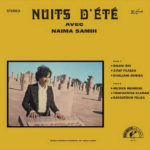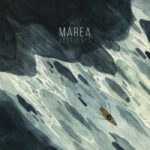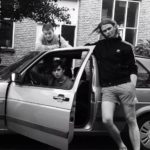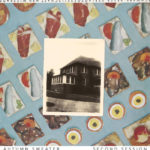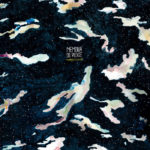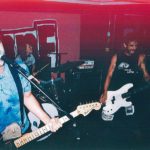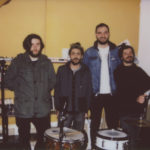(via PAST)
You don’t need to speak Polish to understand the attitude and aesthetics of PAST, a post-punk band from Warsaw that started playing in 2011. Sure, their lyrics are a fundamental part of their work, focusing mostly on the current state of the world with a certain disillusionment – but with an ever present glimpse of hope. But all of this information can already be grasped by carefully listening to the powerful voice of Gosia, the band’s lead singer.
There’s something in her beautiful vocals that manages to bear the band’s spirit and captures the listener. Her strong harmonies stand above the ravenous and dystopian sound of their new record, Czarno/Biela (Black/White), while fitting perfectly in it at the same time.
On their Bandcamp page, PAST assert they play music “so that they can run away from norms and mediocrity.” Mediocrity in particular, or rather refusing it and fighting it, is central to their work, and that is not something to be underrated. While clearly fond of cold post-punk, the band renovates the the dark ’80s sound and modernizes it in a sparkling way.
Cutting synths often fill the space, invigorating the album with an unusually wide range of colors, while an omnipresent bass and blossoming guitars add a precious depth to the band’s compositions, pushing the band towards a roaring punk urgency with the help of fast-paced and never monotonous drums.
All of these elements turn Czarno/Biela into an exciting and epic ride, one that creates an atmosphere that owes a lot to the German post-punk of thirty years ago. It’s post-apocalyptic, but with a sizable dose of emotions and curiosity for all the possibilities that this type of music can offer.
Past:
Facebook
Bandcamp
